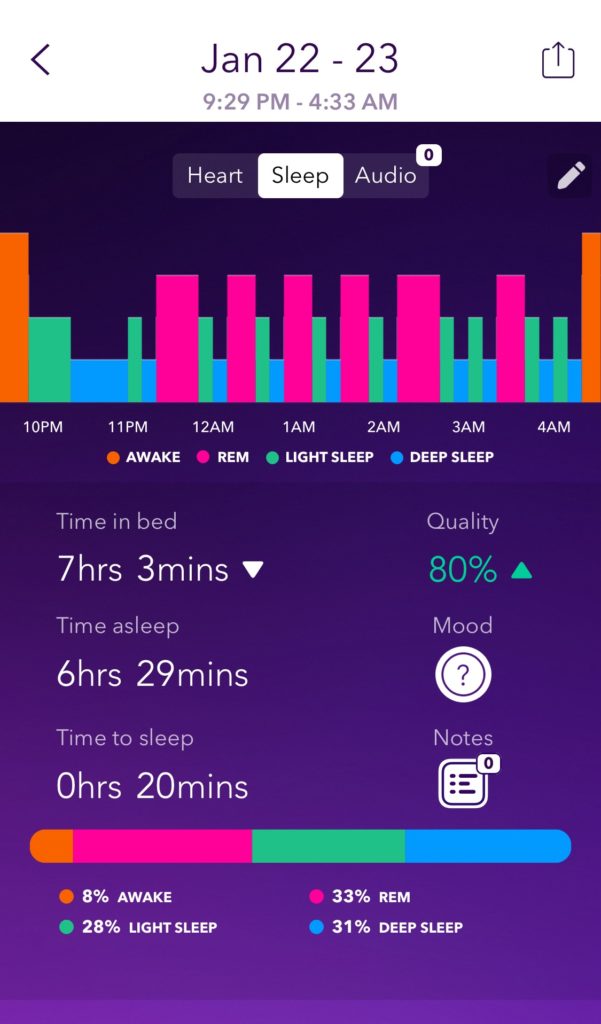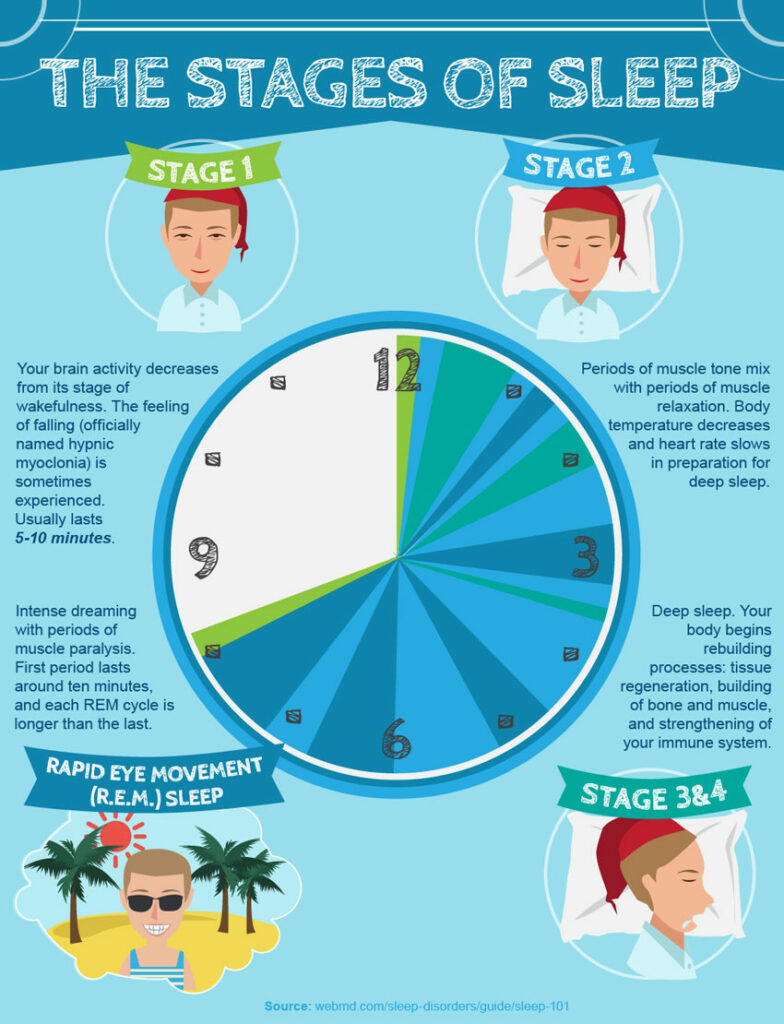Getting adequate sleep is essential to weight loss, peak performance, and longevity. The oft-repeated conventional wisdom is that we should obtain seven to eight hours of sleep each night, but this is just an arbitrary number. Sleeping habits should change according to seasonal sunlight exposure where you live. It makes more sense to sleep longer when the days are shorter and sleep less during the summer months. Maybe as much as 9 hours during the winter and 7 or 8 during the longer days of summer. A good guide is to go to bed one to two hours after sunset in the summer months, and four to five hours after sunset in the winter. Once you have your sleep patterns synchronized with the other 10 pillars you will be amazed at how easy it is to maintain this kind of pattern on autopilot.

These sound like sensible enough guidelines to follow, however, researchers have found that 40 % of Americans get less than five hours of sleep, and 75% suffer from some form of sleep disorder. As a priority, you should make an effort to synchronize your sleeping habits with the rising and setting of the sun. Engaging in evenings with minimal artificial light and digital stimulation will allow dim light melatonin onset (DLMO) to kick in and actually make you feel sleepy at a respectable hour.
Circadian Rhythm: For billions of years, the evolution of nearly all life forms on earth has been driven by the consistent rising and setting of the sun. This circadian rhythm governs our sleeping and eating patterns as well as the precise timing of important hormone secretions, brain wave patterns, and cellular repair and regeneration based on a 24-hour cycle. When we interfere with our circadian rhythm via excessive artificial light and digital stimulation after sunset, irregular bed and wake times, sleep aids, alcohol, poor food (particularly excess carbohydrates in the hours before bedtime), jet lag, graveyard shift work, and alarm clocks, we disrupt some of the very processes we depend upon to stay healthy, happy, productive, and focused. When we don’t honor our circadian rhythm, we impair our ability to process even moderate levels of oxidative stress, which leads to accelerated aging and measurable neurological decline.
When the sun sets, our circadian rhythm causes the sleep hormone melatonin to increase in the bloodstream. Melatonin is manufactured in the pineal gland near the center of the brain. As light decreases and darkness kick in, the pineal gland begins to convert the feel-good hormone serotonin to elevated levels of melatonin in order to induce a good night’s sleep. This process, referred to as dim light melatonin onset (DLMO), relaxes brain waves and muscles and lowers body temperature, blood pressure, and heart and breathing rate.
When the sun rises, our circadian rhythm responds to the onset of light by decreasing amounts of melatonin and raising serotonin levels so that we wake up alert, refreshed, and ready to tackle the day. Light is registered first through the retina; the signal travels through the optic nerve to other regions of the brain, including the pineal gland that activates the release of serotonin. Levels of the stress hormone cortisol increase within the first 30 minutes of waking. This desirable genetic mechanism prepares us for the energy demands of a busy day. The serotonin-cortisol effect is most effective closest to dawn, another reason to rise with the light of day.
The Restorative Effects of Sleep: Sleep is a time of recovery. During sleep, testosterone and other adaptive hormones repair organs, strengthen and rebuild muscles, and rejuvenate body systems. The immune system’s white blood cells kick into high gear. Sleep also activates the release of human growth hormone (HGH), which helps the body burn fat. As you sleep, regions of the brain responsible for emotional and social function are rested so that you can face the day refreshed. Restorative sleep helps the brain solidify weak memories that might otherwise fade over time.
Chronic sleep deficit: Chronic sleep deprivation affects how the body processes and stores carbohydrates, and alters hormones that affect appetite and metabolism. Not getting enough sleep can adversely influence mood, concentration, memory retention, and productivity, and can lead to hypertension, increased stress hormone levels, irregular heartbeat, a compromised immune system, obesity, sexual dysfunction, premature aging, certain cancers, and heart disease
Sleep Cycle: The brain is still active during sleep. Throughout the night, the brain drifts in and out of various sleep stages. Stage N1 marks your transition to sleep. During these first five minutes, your eyes move slowly under the eyelids, muscle activity slows down, and you can be easily awakened. Stage N2 accounts for 50% of sleep time. During these next 10 to 25 minutes, eye movement stops, heart rate slows, and body temperature decreases. The brain consolidates learning complex motor skills and uploads information that is later processed during REM sleep into long-term memory.
We experience maximum restorative hormone flow and cellular repair in our deepest sleep during stage N3. As brain waves slow, blood flow is directed away from the brain and towards the muscles, restoring physical energy. Adaptive hormones flow at peak levels, and macronutrients are synthesized efficiently, thereby repairing and replenishing muscles, organs, and bones. This slow-wave sleep stage predominates early in the sleep period, so it’s critical to get to sleep on time. I view the first 4 hours of sleep, which for me is typically 10 pm through 2 am as the “money time” and try to put myself in a situation that limits the likelihood of being woken up during this period.
About 70 to 90 minutes after flowing through non-REM sleep, you enter REM (rapid eye movement) or dream sleep, which accounts for 20% of the sleep cycle. During REM, the arm and leg muscles are paralyzed, the eyes move rapidly, the breathing shallows and heart and blood pressure increase. REM sleep improves spatial, perceptual, and visual skills, and sorts out emotional experiences and stressful events. It is during the REM stage that important neural connections strengthen memory, replenish cognitive processing, and boost neurotransmitters such as serotonin and dopamine.
Each complete cycling through non-REM and REM stages of sleep lasts approximately 90 minutes and is repeated throughout the night. Divide the night’s sleep into three time periods: the first is made up of the highest percentage of non-REM sleep, the final third is made up of longer REM cycles and shorter deep sleep cycles, while the middle is a balance between the first and third. When we awake naturally without an alarm or other disturbance, we give our body a chance to flow through these cycles uninterrupted.
After a period of exclusive REM, which increases heart rate, respiration, and muscle and brain wave activity, we wake up effortlessly and in a more refreshed state. The various stages of light to deep sleep help the brain organize short- and long-term memory and fine-tune cognitive functioning, a process called synaptic homeostasis. Sleep refreshes the synapses (spaces located between nerve cells that allow the cells to communicate with each other). Synapses respond to myriad, often overwhelming stimulation during waking hours. The more enriched our days are, the more synapses grow, but our synapses can only take so much before they peter out with exhaustion. Sleep, thus, restores our synapses.

Sleep Time vs. Sleep Cycles: Researchers at the Center for Applied Cognitive Studies in Charlotte North Carolina maintain that in order to feel refreshed and support optimal health and wellness, the number of complete sleep cycles is more important than the total amount of sleep time acquired. Achieving the ideal number of sleep cycles, however, is a delicate process guided by optimal hormone flow and easily disturbed by outside influences.
In order to attempt to figure out where you are in this delicate process requires some record of your sleeping patterns. Personally, I use an app called Pillow. One component operates on my Apple Watch as I sleep which has a Bluetooth link to the component on my iPhone that provides a detailed report in a graphical and textual format.
My Tips: Having complete control over your sleep management process is impossible. There are a number of things I do to try and optimize my sleep process:
Avoid screens and blue light before bed. I do not watch TV or look at digital displays after 9 pm. Not having a TV in the bedroom is a great help. If you have to look at your phone screen during this time reduce the brightness to a minimum. I wear blue light blocking glasses if exposed to incandescent lights. As I read in bed as a means of relaxation before falling asleep, I use an orange bulb in my bedside lamp. This type of stimulation disrupts melatonin production.
Caffeine curfew: I typically do not drink caffeine afternoon. I drink about 4 cups of coffee in the morning, and I have a decaffeinated coffee after dinner. Drinking coffee in the latter part of the day can disrupt your sleep due to the increased levels of the stress hormone cortisol. Remember cortisol is part of the wake-up package of hormones and will compete with your melatonin production during the critical hour or so before sleep.
Be Cool: 68 degrees Fahrenheit is considered the optimum sleep temperature. I utilize air conditioning, heating, and my bedroom windows to manipulate my bedroom temperature.
Go to bed at the right time: That will be the right time for you. For me, I like to be asleep by 10 pm. That way I have a chance of getting my “money time” sleep in by 2 am allowing another 4 hours or so to cycle through numerous complete sleep cycles.
Fix your gut health: This is a complex subject that I will cover in great detail with videos and blog posts elsewhere on this website. Suffice to say if your gut is not in good health your hormones are going to be out of whack. As mentioned before hormones are a critical part of the sleep process and if they are not operating optimally, your sleep will be negatively affected.
Create a Sleep Sanctuary: Take a minimalist approach when it comes to outfitting your bedroom. For minimal stimulation and maximum relaxation, use the bedroom for sleeping only. Remove all electronics, including computers and televisions, as well as work materials and desks. Eliminate clutter such as excess clothing, loose paperwork, piles of books/magazines/newspapers, home supplies and so forth. Add an expert-recommended indoor house plant, which naturally purifies the air by removing toxins.
Blackout: Total darkness is an essential element of optimal sleep, as it has been for millions of years of evolution. When you sleep in a calm, quiet, totally dark sanctuary and you get in great sync with your circadian rhythm, you will naturally awaken near sunrise, even if you are sleeping in a very dark room. I use blackout curtains and I also wear a Manta Sleep Mask.
Easy on the bottle: Drinking alcohol just before you go to bed is not going. to result in an optimal night’s restorative sleep. You guessed it, it’s going to mess with your hormones. Occasionally I have a glass of wine with my dinner but I try to ensure that it is a couple of hours before I go to bed. On occasions where I have violated this rule, the graphics reports on my sleep app have definitely indicated that my sleep patterns have been compromised.
Smart supplementation: Supplements are designed to mess with your hormones by making up for deficiencies in your diet. Taking them close to bedtime will affect your sleep. I use my nutrition app to inform me of the necessary supplements I need to take to make up for deficiencies in my diet on a given day. I usually take them right after dinner when I have finished eating for the day at least 3 hours before I go to bed.
Rise early: If you have taken note of all the information above you will likely wake up in the morning fully refreshed soon after sunrise. I rarely set the alarm, of course, it helps being retired. If I go to bed at my usual bedtime around 10 pm, I usually wake up naturally and refreshed between 5 and 6 am. Some days it may be as early as 4 am. I enjoy the early part of the day as I get to enjoy the sunrise and can be quite productive getting up three hours or so before the rest of the family. It’s not a good idea to stay in bed on Saturdays or Sundays just because you don’t have to go to work. It will mess with your circadian rhythms and cause problems when you go back to the regular weekly routine.
Dress for the occasion: This may sound like a joke but there is some virtue in sleepwear. I have been on the “sleep naked bandwaggon” for most of my adult life. It has now been pointed out to me that getting dressed for bed as part of your
Essential Oils play a large role in Sleep Management.

Emotional: Arborvitae, Bergamot, Black Spruce, Cilantro, Citrus Bliss, Clove, Copaiba, Eucalyptus, Frankincense,Geranium, Ginger, Green Mandarin, Hinoki, Jasmin, Juniper Berry, Lavender, Melissa,Neroli, Orange, Passion, Petitgrain, Roman Chamomile, Rose, Sandalwood, Serenity, Spearmint, Spikenard, Yarrow Pom, Ylang Ylang
Note: Many different oils are listed above. While they are all relevant, nobody would ever use them all. If you are a Be Lean For Life Coaching client you may have the oils personally mapped to your specific requirement based on data collected during the coaching program.
If you want to go it alone feel free to peruse the doTERRA Ebook Library. Alternatively, you can buy all these oils at wholesale prices by becoming a member


Recent Comments